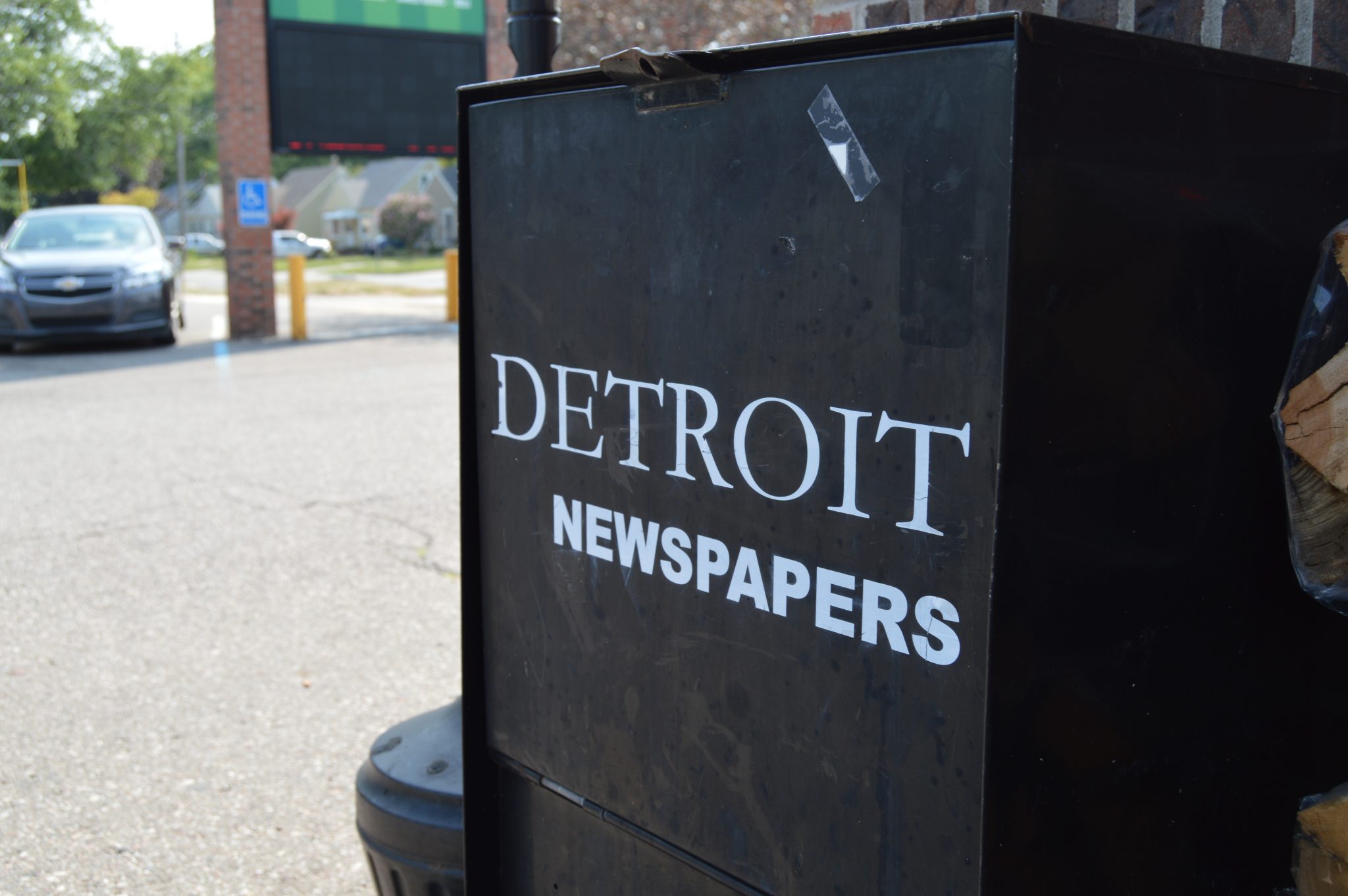How Relevant Are Newspaper Endorsements in 2020?
MLive Media Group recently announced it would not make an endorsement in 2020. Here’s why.

Newspapers and media outlets have been formally endorsing candidates for well over 100 years in this country. For some, those endorsements carry a lot of weight because they’re coming from a trusted news source. Other people shrug them off.
But as newspaper and other media outlets become increasingly strained for resources, and the media landscape – as well as our election cycles – evolve, is there still a need for newspaper endorsements for candidates?
Subscribe to MichMash on iTunes, Spotify, Google Podcasts, NPR One or wherever you get your podcasts.
Earlier this month, MLive announced that it would not make an endorsement in the presidential election.
In a Letter From the Editor, John Hiner, Vice President of Content for MLive, says the outlet will not be endorsing in the 2020 election because, “Political endorsements have not aged so well, in our view. Nor will they add anything of substance to our body of work leading up to the presidential election, or beyond.”
In 2016, MLive endorsed Hillary Clinton for president.
“I think we learned in the aftermath of that, that where our power lies, and where we’re best, is presenting information news doing reporting on substantive issues,” Hiner tells Roth and Neher.
“We started to feel like opinion had caused a loss of trust in mainstream news as information itself, not just opinion.” – John Hiner, MLive Media Group
Hiner says there is a “firehose” of opinion widely available via social media, and the 2016 election made them reconsider what value endorsements have.
“We started to feel like opinion had caused a loss of trust in mainstream news as information itself, not just opinion,” he says.
He explained that to put together a thoughtful, quality endorsement, takes an incredible amount of time and resources.
“While some of this is philosophical, some of it is practical,” Hiner says.
“We have eight newspapers in Michigan, and they all had a lot more employees in the past,” he continues. “And we had editorial boards, and editorial boards have the capacity to serve a very important public service, which is we would bring in candidates for city council, drain commissioner… And we would spend an hour interviewing them and getting deep into their stands on issues and then give an informed opinion. We’ve lost the resources and the ability to do that. We don’t have editorial boards like that anymore, I’m very sad to say. So we put our resources into news reporting, and getting information that’s critical vetting and getting it out to people so they can make their own decisions.”
“The newspaper is like a neighbor in your community.” – Stephen Henderson, former editorial page editor, Detroit Free Press
A lot of people still do believe that these endorsements are a key function of newspapers. WDET’s Detroit Today host Stephen Henderson was the editorial page editor at the Detroit Free Press for many years, and he’s made a lot of endorsements — for the Free Press and other newspapers across the country.
He says even if you’re not going to change someone’s mind with an endorsement, it’s still valuable.
“The newspaper is like a neighbor in your community,” says Henderson. “And so when it tells you which candidate it favors for any particular political office, it’s a way for voters to say, ‘Well, I know this institution, and I know what they stand for. In this instance, they’re going to go with this candidate. So that helps me as a voter think about where I stand.’”
Whether a newspaper endorses candidates or doesn’t, they are still providing a wealth of information in the months, weeks, possibly even years leading up to an election with all of their coverage. A lot of newspapers and news outlets also provide voter guides, which will just give you a rundown on where the candidates stand on various issues.
More From MichMash:
Why words matter when we talk about terrorism
Three Pieces of Advice to Make Sure Your Vote Counts This November
Racial reckoning at Michigan’s art museums
President Trump’s uneven track record with the Great Lakes has environmentalists worried
Trusted, accurate, up-to-date
WDET is here to keep you informed on essential information, news and resources related to COVID-19.
This is a stressful, insecure time for many. So it’s more important than ever for you, our listeners and readers, who are able to donate to keep supporting WDET’s mission. Please make a gift today.

